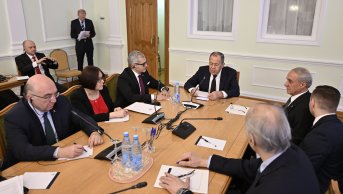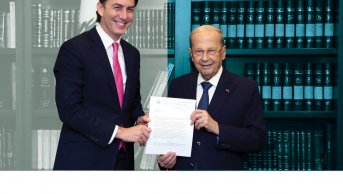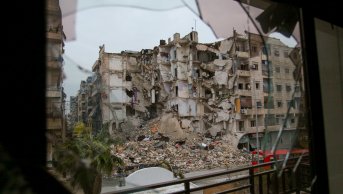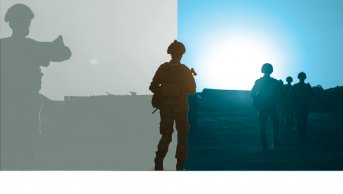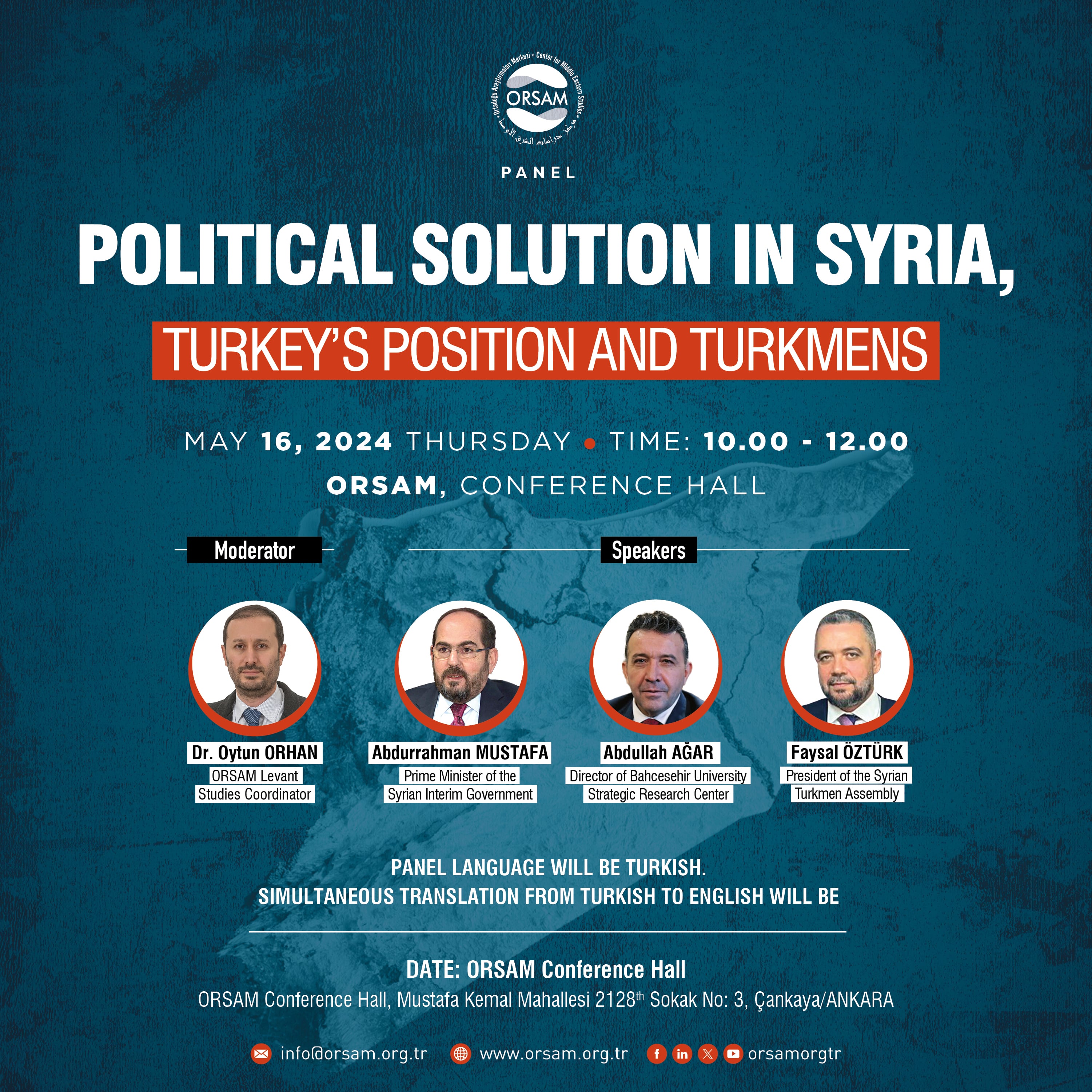The Jabal Zawiyah Knot for the HTS
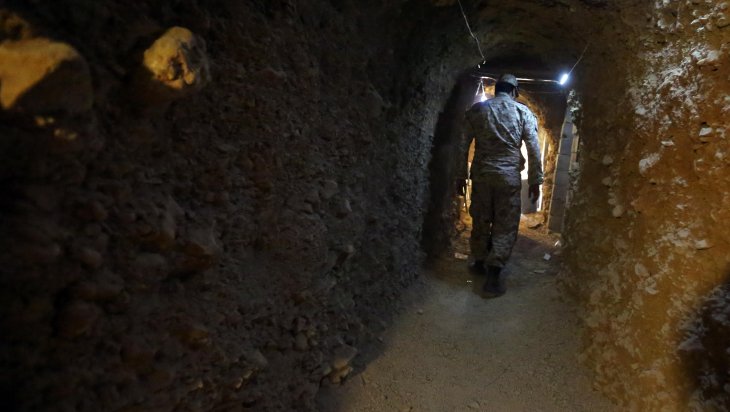
Approximately one year after the beginning of the assault in May 2019, the regime forces have captured more than half of Idlib. In this process, the fact that the Hayat Tahrir al-Sham (HTS) lost strategic regions rapidly without resistance as well as the rapid advance of the regime were the subjects of discussion. While the HTS had capitalized on its military capabilities on the ground, the loss of major settlements such as Khan Shaykhoun and Maarat al-Nouman led to questions and doubts about its military prowess. In other words, the loss of a large territory in a short time has brought about a blow to the prestige of the HTS. The Moscow Agreement that was signed between Turkey and Russia on 5 March 2020 has determined the new borders of Idlib. According to the agreement, it was decided that some portions of Jabal Zawiyah and the Ghab plain will remain in the control of the opposition. Yet, the regime and the Iran-backed militia have resumed their offensive against Jabal Zawiyah. Consequently, a major portion of Jabal Zawiyah was declared a military zone and the civilians were evacuated to areas under the control of the armed opposition. As the tensions in the region increased, the HTS and the HTS-backed Salvation Government, which was the most powerful faction in Idlib in political and military aspects, started to lose power in terms of field domination and legitimacy. At this point, a regime victory in Jabal Zawiyah may trigger a chain of events that would end the presence of the HTS.
The scale of the tensions in Jabal Zawiyah
The joint Turkish-Russian patrols along the M4 highway have a 6 km depth to the north and the south, are conducted in accordance with the Moscow Agreement, and have brought armed conflict to the area south of that line between the regime and the armed opposition. The lack of a direct Turkish or Russian intervention led to the escalation of tensions day by day. The settlements of Jabal Zawiyah such as al-Bara, al-Ftera, Kansafra, Sfuhen, al-Khalouba, al-Ruwayha and Bayanin suffered from intense rocket and artillery strikes by the regime. In response, the operation areas formed by the armed opposition elements including the HTS launched counter-operations. Numerous clashes have taken place since 5 March 2020between the regime and the armed opposition in Jabal Zawiyah, which has turned into an excessively militarized zone with additional deployments and military reinforcements after June 2020. The 6th Armored Division of the regime army and the 4th Armored Division under the command of Mahir al-Assad have been positioned in the Ghab plain and have become actively involved in the assault against Jabal Zawiyah. The Iran-backed Imam Ali Battalion has also been deployed in the region. In addition to these forces, the Iran-backed militia that was deployed in Saraqib started attacking the region in order to further escalate the current tensions. The HTS in return has sent a high number of its forces in the region in order to reinforce its fortifications in Jabal Zawiyah and the Harrad al-Mouminoun operations room along with military and logistical equipment.
Following the fighting in Jabal Zawiyah closely, Russia did not confine itself to posting reconnaissance teams in the region and launched air operations. After the Moscow agreement of 5 March 2020, the first Russia air operation was conducted on 2 June 2020. Even though it was declared that these operations did not have specific targets and aimed at training missions for the Mig-29 aircraft that were brought to the Hmeimim air base, the air strikes continued increasingly from June 2020 onward. Jabal Zawiyah and its surroundings were deliberately targeted in these air strikes launched by Russia. The settlements in Jabal Zawiyah such as Qansafra, Balyon, Al-Mawzara, al-Ftera and Kafr Uwaid were hit. The first civilian casualty of the Russian air strikes was in Balyon on 9 June 2020. Therefore, not only the regime, the Iran-backed militia and the radical groups like the HTS but also Russia, the guarantor of the Moscow agreement, acted in breach of the agreement. Turkey watches the rising tensions closely and seeks to control developments by making new military deployments in the region with a view to maintain the Moscow agreement and reduce tensions. Yet, as the Russian air support is added to the attacks by the Iran-backed militia and the regime, the risk for military confrontation in Jabal Zawiyah that involves the local and regional actors is increasing.
Jabal Zawiyah can be the beginning of the end for the HTS
In the context of the Moscow Agreement, the sides have agreed to fight against the extremists including the HTS. Turkey’s resolute steps in this direction have brought about a loss of legitimacy for the HTS, which have also lost a great deal of territory. The HTS and the HTS-backed Salvation Government have also experienced a loss of prestige as the people of Idlib started criticizing and questioning, which makes it more difficult for the HTS to maintain control over Idlib.
The fact that Mohammad Jolani, the leader of the HTS, is being openly criticized in the protests that have been increasing since June 2020, can be regarded as an uprising against the HTS. Being held responsible for the deteriorating social and economic order, the HTS is focused on attaining a military victory to amend the situation. The HTS faced a tough response by Turkey when it tried to hinder the joint Turkish-Russian patrol along the M4 highway due to its displeasure with Russia. When Turkey did not take a step back from the Moscow Agreement and demonstrated a resolute attitude, the HTS was compelled to turn towards Jabal Zawiyah. It has enjoyed a favorable environment as both the regime and the Iran-backed militia benefits from the fighting. Similarly, all the groups in the region including the HTS seek to benefit from the fighting environment.
The likely scenarios in Jabal Zawiyah might bring a new chapter for the HTS. Decisively pushing back the assaults by the regime and the Iran-backed militia against the region may compensate for the loss of reputation that the HTS has lost. In an opposing scenario, the HTS may enter a period that can be regarded as the beginning of the end of the HTS. Since Turkey has powerful dominance in the north of the M4 highway that prevents the activities of the HTS, the organization will be deprived of a safe zone that enables its independence if it loses Jabal Zawiyah. Its losses will not be limited to dominance of the area. Furthermore, its reputation will be further eroded in the eyes of the people when it can no longer attain ‘military gains against the regime’, which is its major source of legitimacy. Therefore, Jabal Zawiyah is an existential struggle for the HTS. As one of the parts of the tension in Jabal Zawiyah, the HTS may prepare doom for itself unless it can untie the knot here.
The possibility of military clashes in Jabal Zawiyah may bring about many risks for the future of the Moscow Agreement. Therefore, Turkey, which attaches importance to the sustainment of the agreement and rendering the regional stability permanent, will try to prevent any military confrontation in Jabal Zawiyah by hastening diplomatic contacts with Russia. That is because any military confrontation, regardless of its outcome, will cast a shadow on the Moscow Agreement. In other words, preempting a military confrontation that is likely to emerge in Jabal Zawiyah is crucial for the safety of the people of Idlib and for Turkey’s national interests. The diplomatic steps that are to be taken at this point carry a vital importance for the security of the region.

